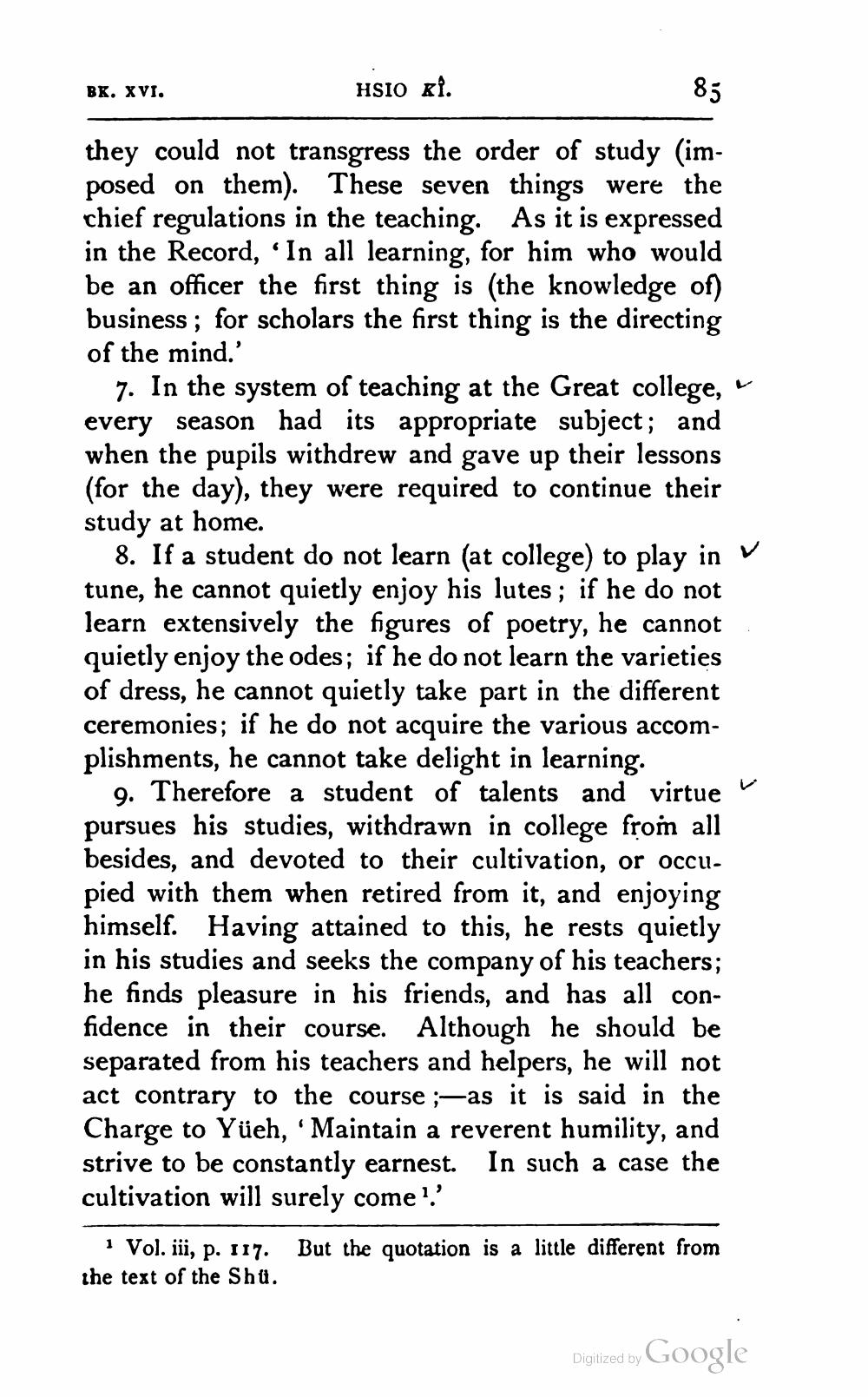________________
BK. XVI.
HSIO KI.
83
they could not transgress the order of study (imposed on them). These seven things were the chief regulations in the teaching. As it is expressed in the Record, 'In all learning, for him who would be an officer the first thing is the knowledge of) business; for scholars the first thing is the directing of the mind.'
7. In the system of teaching at the Great college, every season had its appropriate subject; and when the pupils withdrew and gave up their lessons (for the day), they were required to continue their study at home.
8. If a student do not learn (at college) to play in v tune, he cannot quietly enjoy his lutes; if he do not learn extensively the figures of poetry, he cannot quietly enjoy the odes; if he do not learn the varieties of dress, he cannot quietly take part in the different ceremonies; if he do not acquire the various accomplishments, he cannot take delight in learning.
9. Therefore a student of talents and virtue pursues his studies, withdrawn in college from all besides, and devoted to their cultivation, or occupied with them when retired from it, and enjoying himself. Having attained to this, he rests quietly in his studies and seeks the company of his teachers; he finds pleasure in his friends, and has all confidence in their course. Although he should be separated from his teachers and helpers, he will not act contrary to the course ;-as it is said in the Charge to Yüeh, 'Maintain a reverent humility, and strive to be constantly earnest. In such a case the cultivation will surely come?'
1 Vol. iii, p. 117. But the quotation is a little different from the text of the Shu.
Digitized by Google




